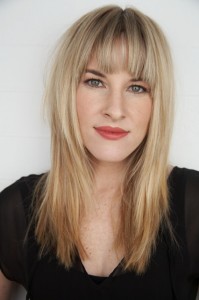Imagine, if you will, sitting for months, even years, at a desk, or on the bed, or on a couch, or in a cafe, or in a park. Life buzzes around you, but you’re in another land. You’re on a scorching battlefield in. Or in 1850s Australia. Or in a juvenile prison. Or in a loungeroom with wallpaper peeling off the walls. The inhabitants of this land are your playthings. You get to put words in their mouth, scars on their skin, methods to their madness. The real world buzzes on around you, but you’re solitary within it. You write on with passion, with frustration, with enlightenment, until the inevitable block comes and you look up and blink at the real world for inspiration. You can’t leave it untouched, this world. It begs to be fed, plumped up, dressed, encouraged, told off, given a reason to be. It becomes your creature and you will it to grow into something extraordinary. And so you write on.
A little while later, you stand from your desk, or table or bed or patch of grass, take the creature by the hand and lead it – hopefully – into a rehearsal room. Actors speak those long-pondered words. Designers enhance what you know inside-out, back-to-front. A director will prod and poke the creature. Take off its hat, replace its coat. Maybe replace its leg with an arm. Make it march around the room so everyone can take a good look at it. And you watch with a racing heart, sweaty palms, and a protective embrace as the creature starts to change. And you hope to god you’ll still love it and it will still love you.
Move on further, and the creature is now – hopefully – playing. People sit in rows and watch it. They laugh and gasp and scowl and cry or sit in silent judgement, or stunned with emotion at the creature’s story. And you’re right there in the middle of them, filled with pride. With fear. Mortified. Or exultant. Or exhausted. Newspapers and websites now poke at your creature. People read about your creature at their desks, or their beds, or in cafes or in parks. They comment on it. They question it. They celebrate it. They berate it.
And you realise your creature isn’t a creature anymore. It’s a piece of life. Of yours. Of theirs. That solitary imaginary world it used to exist in has – for a brief time – become very much a reality. Maybe it will again. Who knows? But at least it existed.
And despite the whole damn thing, you wave goodbye to your creature, wish it all the best, wander back to your desk, or your bed, or your couch, or your cafe, or your patch of grass in the park, and give birth all over again.
Kate Mulvany
 Kate’s play The Danger Age was shortlisted for the Sydney Theatre Company 2004 Patrick White Playwright’s Award and she was the winner of the 2004 Philip Parsons Young Playwright’s Award, for which she was commissioned by Belvoir to write The Seed. The Seed went on to win the Best Independent Production and was nominated for Best New Australian Work at the 2007 Sydney Theatre Critics’ Awards. It was also nominated in 2008 for an AWGIE Award, the Queensland Premier’s Literary Award and received a honourable mention in the Asher Awards. After two sell-out seasons at Belvoir The Seed went on to tour Australia and in 2012 it makes its Melbourne premiere for Melbourne Theatre Company. In 2009, Kate’s play The Web was co-produced by Black Swan Theatre Company and Hothouse Theatre Company. In 2010, her play The Wreath was developed for Bell Shakespeare’s Minds Eye initiative, and she completed a new adaptation of Shakespeare’s Julius Caesar, which toured Australia in 2011 for Bell Shakespeare.
Kate’s play The Danger Age was shortlisted for the Sydney Theatre Company 2004 Patrick White Playwright’s Award and she was the winner of the 2004 Philip Parsons Young Playwright’s Award, for which she was commissioned by Belvoir to write The Seed. The Seed went on to win the Best Independent Production and was nominated for Best New Australian Work at the 2007 Sydney Theatre Critics’ Awards. It was also nominated in 2008 for an AWGIE Award, the Queensland Premier’s Literary Award and received a honourable mention in the Asher Awards. After two sell-out seasons at Belvoir The Seed went on to tour Australia and in 2012 it makes its Melbourne premiere for Melbourne Theatre Company. In 2009, Kate’s play The Web was co-produced by Black Swan Theatre Company and Hothouse Theatre Company. In 2010, her play The Wreath was developed for Bell Shakespeare’s Minds Eye initiative, and she completed a new adaptation of Shakespeare’s Julius Caesar, which toured Australia in 2011 for Bell Shakespeare.
